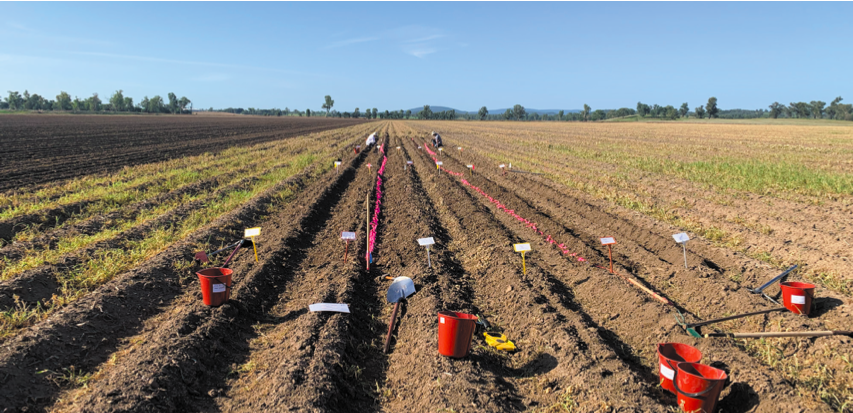Can you shock a seed?
Planting the seed storage trial potatoes, January 2024
Buying good quality seed is, arguably, the most important annual decision a grower will make. Handling and storing that seed correctly is essential to maximise returns on this valuable investment, and avoiding condensation during cooling is critical to minimise the risk of storage diseases. To achieve this, seed potatoes are usually cooled very slowly, dropping only 2 degrees celsius weekly.
It has been suggested that slow cooling has another benefit too. Allowing the seed to adjust gradually to low temperature avoids a large temperature change which, as the theory goes, could stress or 'shock' the tuber. Physiological stress can certainly increase ageing, and even affect viability of the tiny dormant sproutlets.
However, from a postharvest view, the aim is usually to cool as soon and as fast as possible after harvest. Rapid cooling avoids moistures loss, reduces the risk of rots, and is more energy efficient.
At the Canowindra, NSW demonstration site, PotatoLink tested the effects of three different cooling rates. Read more about the trial and the results in Issue 13 of PotatoLink magazine.

